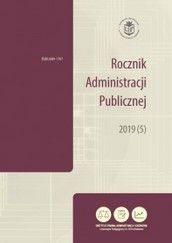Standardy postępowania administracyjnego według ReNEUAL. Modelu kodeksu postępowania administracyjnego Unii Europejskiej
Standards of Administrative Proceedings under the ReNEUAL Model Rules on EU Administrative Procedure
Author(s): Przemysław OstojskiSubject(s): EU-Approach / EU-Accession / EU-Development, EU-Legislation
Published by: Wydawnictwo Uniwersytetu Jagiellońskiego
Keywords: procedural fairness; administrative procedure of European Union; protect of individual rights in administrative procedure; general principles of administrative procedure; efficiency; effectiveness;
Summary/Abstract: This study aims to analyse the procedural institutions contained in Book III – and as necessary also Book I – of the ReNEUAL Model Rules on EU Administrative Procedure. The objective is to indicate the minimum standards of administrative procedure in EU member states which are illustrated following the criteria that constitute the notion of procedural justice formulated in the acts of European law. According to the case law of the CJEU and the doctrine of European administrative law, procedural standards of European law are expressed in such legal principles as that of participation, the requirement of justifying administrative acts or the right of access to administrative case files. In the preamble of the ReNEUAL model rules to Book I, one reads that public authorities should take into account efficiency, effectiveness and service orientation. The entire Book III serves to enact the basic right to good administration as regards preparation of decisions in individual cases. From the perspective of the national Polish legal order, the Model is innovative in the case of many solutions. As regards institutions related to the lodging of proceedings of particular importance are such solutions as the body’s obligation to indicate – already in its notice for the parties of launching ex officio proceedings – available means of appeal (Article III-5(3)) as well as the possibility of its issuance of an opinion on the information to be provided by the applicant (Article III-13 (2)). As regards the effective launch of administrative proceedings, the admissibility of rejecting aimless or clearly ungrounded applications (Article III-6 (3)) are surely innovative. In terms of information collection, an innovative solution is the possibility of inspections in the framework of the general regulation of the Model (Article III-16 ff). At the stage of the issuance of administrative decisions, of considerable importance is the expressis verbis proposal for the requirement of decision justification in a manner that is clear, simple and understandable as well as the instruction contained within the (non-finite) decision that it can be appealed against not just in administrative proceedings but before a court and the Ombudsman.
Journal: Rocznik Administracji Publicznej
- Issue Year: 2019
- Issue No: 5
- Page Range: 157-173
- Page Count: 17
- Language: Polish

